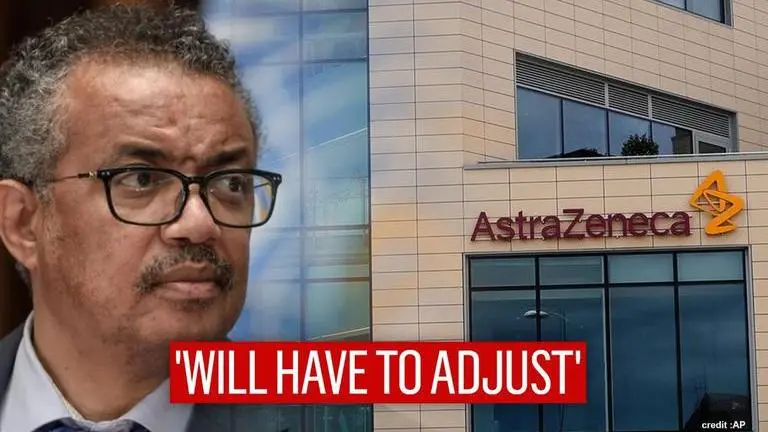Updated 9 February 2021 at 16:52 IST
'COVID-19 variants raise questions around vaccines', says WHO chief after new study
WHO chief Tedros Adhanom on Monday said that the new emerging variants of the COVID-19 virus raise questions around the efficacy of the existing vaccines.
- World News
- 3 min read

The World Health Organization (WHO) Director-General Tedros Adhanom Ghebreyesus on Monday said that the new emerging variants of the COVID-19 virus raise questions around the efficacy of the existing vaccines. WHO chief, while speaking at a briefing said that it is clear manufacturers will have to make changes to their vaccines in order to make them more effective against new variants.
South Africa has temporarily halted the use of AstraZeneca's COVID-19 vaccine following new study that showed the drug was less effective against the variant found in the country late last year, known as 501Y.V2. The new data showed that AstraZeneca's COVID-19 vaccine, which the company developed in partnership with Oxford University, was overall 66% effective against variants discovered in the United Kingdom, Brazil, and South Africa, while only 22% effective when tried against the South African variant alone.
Advertisement
'Will have to adjust'
The study that showed the South African variant to be minimally effective, was limited in size as it consisted of some 2,026 participants. Tedros said given the trial was limited and only consisted of young and healthier participants, it is important to determine whether or not the vaccine remains effective in preventing more severe illness. According to Professor Salim Abdool Karim, co-chair of South Africa’s Ministerial Advisory Committee on COVID-19, some 2,026 participants took part in the trial. Professor Karim said South Africa also plans to move ahead with deploying vaccines made by Pfizer/BioNTech and Johnson and Johnson, according to media reports.
"These results are a reminder that we need to do everything we can to reduce the circulation of the virus with proven public health measures. It also seems increasingly clear that manufacturers will have to adjust to the evolution of the virus, taking into account the latest variants for future shots, including boosters," WHO chief said at the briefing.
Vaccine manufacturers have already started working on new vaccines or are looking at tweaking the existing ones to make them more effective against new emerging variants. Oxford's Andrew Pollard, who worked on AstraZeneca's COVID-19 vaccine, has said that manufacturers are preparing new vaccines, so, in case they are needed, they will be available. Pollard added that there is no need for alarm at the moment as scientists are working on new vaccines.
Advertisement
"I think the jury is out on that at the moment, but all developers are preparing new vaccines so if we do need them, we'll have them available to be able to protect people. I think there's clearly a risk of confidence in the way that people may perceive you. But as I say I don't think that there is any reason for alarm today," Pollard said while speaking to BBC.
“While the overall efficacy of the AstraZeneca vaccine was 66 per cent in the larger study that includes the UK, Brazil and South Africa, the South African data on its own showed only 22 per cent efficacy,” he said.
“We know from the overall trial that the AstraZeneca vaccine is effective against other pre-existing variants. We’re just not confident about its efficacy against the 501Y.V2 variant.”
AstraZeneca's COVID-19 vaccine is being widely distributed across the world as part of WHO's COVAXIN initiative. The vaccine is also being manufactured by the world's largest vaccine manufacturer - Serum Institute of India, under the brand name Covishield. Serum Institute of India is supplying the vaccine worldwide through the Indian government and also commercially to countries dealing directly with it.
Published By : Vishal Tiwari
Published On: 9 February 2021 at 16:52 IST
